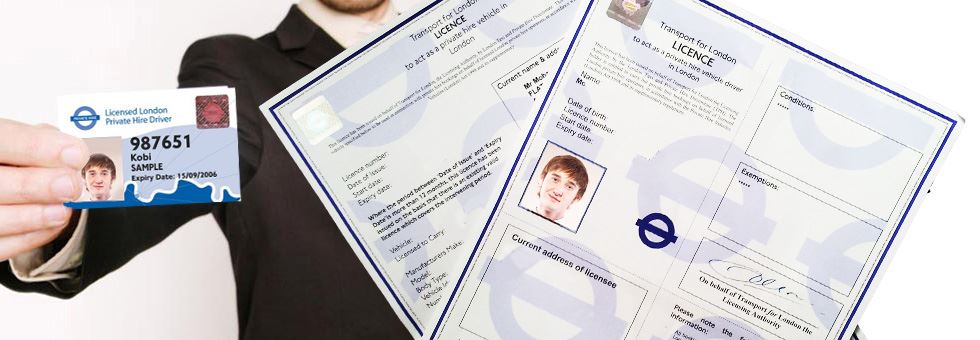Sweden is known for its rich cultural diversity and welcoming policies towards people from all over the world. However, navigating migration law in Sweden can be a complex process for many people. Whether you’re planning to move to Sweden, seeking asylum, or looking for residency options, understanding the legal framework is crucial.
In this blog post, we’ll break down migration law in Sweden and how professional legal assistance can guide you through the process. Whether you’re applying for a work permit, studying in Sweden, or seeking permanent residency, it’s important to understand the key aspects of migration law to avoid common pitfalls and ensure your application is successful.
At Advantage Law Firm, we specialize in helping individuals navigate the complexities of migration law in Sweden. Let’s explore the essential parts of the migration process, the legal requirements, and how our expert team can support you through every step.
What is Migration Law in Sweden?
Migration law in Sweden governs the rules and regulations that determine how foreign nationals can enter, stay, and live in Sweden. It covers a wide range of issues, including visas, residence permits, asylum applications, work permits, and family reunification.
Sweden’s migration system is governed by both European Union (EU) rules and national laws, which means that the rules can change depending on whether you are an EU citizen or a non-EU citizen. Understanding these differences is key when applying for residency or permits in Sweden.
Migration law in Sweden also provides protection for individuals seeking asylum or fleeing persecution. Sweden has a strong commitment to human rights and offers protection for those in need, in line with both international conventions and EU directives.
Key Areas of Migration Law in Sweden
1. Work Permits
One of the most common reasons people move to Sweden is for work. To live and work in Sweden as a non-EU citizen, you generally need a work permit. Migration law in Sweden outlines the process and requirements for obtaining a work permit, including the type of job you must have, your salary, and the employer’s obligations.
Typically, an individual seeking a work permit in Sweden must have an employment offer from a Swedish employer. The employer must also demonstrate that the position has been advertised in Sweden and the EU before offering it to a non-EU citizen.
2. Study Permits
Sweden is a popular destination for students from around the world. If you wish to study in Sweden for longer than three months, you will need a study permit. Migration law in Sweden outlines the eligibility requirements for students, including proof of financial means to support yourself, evidence of admission to a recognized educational institution, and health insurance coverage.
Additionally, students may be able to apply for a work permit during their studies, subject to certain conditions, which can lead to the opportunity for permanent residency later.
3. Permanent Residency
One of the key goals for many migrants is to obtain permanent residency in Sweden. After residing in Sweden for a specific period, usually five years, individuals may apply for permanent residency. The requirements for permanent residency depend on factors such as the type of permit you hold, your employment status, and whether you have a stable income and accommodation.
Permanent residency status grants individuals the right to live and work in Sweden indefinitely, as well as access to social benefits.
4. Asylum and Refugee Protection
Sweden has a strong commitment to offering protection to refugees and individuals seeking asylum. Migration law in Sweden ensures that those who face persecution, war, or human rights violations in their home countries can apply for asylum. Sweden’s asylum process involves interviews, documentation, and reviews of your case to determine if you meet the criteria for refugee status.
If your asylum application is approved, you will receive a residence permit, which can lead to permanent residency after a few years.
5. Family Reunification
Sweden allows foreign nationals to apply for family reunification, which allows them to bring close family members (such as spouses, children, or parents) to join them in Sweden. Migration law in Sweden establishes the criteria for family reunification, which may depend on your immigration status, the length of time you’ve been in Sweden, and your ability to support your family financially.
6. Citizenship
Becoming a Swedish citizen is a significant step for many people who have lived in Sweden for a certain period. Migration law in Sweden outlines the requirements for citizenship, which typically include permanent residency, language proficiency, and knowledge of Swedish society.
Individuals applying for citizenship must also demonstrate good conduct, including no serious criminal record. After fulfilling these requirements, you may be eligible to apply for Swedish citizenship.
How Migration Law in Sweden Affects Your Case
The migration law in Sweden can be complex and subject to changes, which is why it’s important to have professional legal assistance when navigating the system. Whether you’re seeking a work permit, asylum, or family reunification, understanding the laws and requirements can be a daunting task.
At Advantage Law Firm, we specialize in migration law in Sweden and provide expert legal services to ensure that your immigration process is as smooth as possible. We can help with:
- Work permits and employment-related immigration.
- Student visas and study permits.
- Permanent residency applications.
- Asylum applications and refugee protection.
- Family reunification applications.
- Citizenship applications.
Our experienced immigration lawyers understand the legal landscape and can provide you with personalized guidance, ensuring that your application is complete and complies with Swedish immigration laws.
Why You Need Professional Legal Assistance
Navigating migration law in Sweden can be difficult without the right guidance. Here are a few reasons why seeking professional legal assistance is essential:
1. Understanding Complex Laws
The laws surrounding migration can be challenging to understand, especially for those unfamiliar with legal jargon or the Swedish immigration system. A professional lawyer will help break down the legal language and explain your rights and responsibilities clearly.
2. Avoiding Mistakes
Mistakes in your application, such as missing documentation or misunderstanding requirements, can lead to delays or even denials. Legal experts specializing in migration law in Sweden can ensure that your application is complete, accurate, and meets all necessary criteria.
3. Improving Your Chances of Approval
With the help of an experienced lawyer, you increase your chances of having your application approved. Legal professionals understand how to present your case in the most favorable light, addressing any potential concerns the immigration authorities might have.
4. Handling Appeals and Legal Challenges
If your application is denied, you may have the option to appeal the decision. Professional legal assistance can help you navigate the appeals process, ensuring that you have the best possible chance of success.
FAQs about Migration Law in Sweden
1. What is Migration Law in Sweden?
Migration law in Sweden is the set of laws and regulations that govern immigration, residency, and citizenship in Sweden. It covers issues like work permits, asylum applications, permanent residency, family reunification, and more.
2. How Can I Apply for a Work Permit in Sweden?
To apply for a work permit in Sweden, you need a job offer from a Swedish employer. The employer must demonstrate that the position was advertised to EU citizens first. You also need to meet certain salary and qualification requirements. For detailed guidance, consult a migration lawyer.
3. What Are the Requirements for Asylum in Sweden?
To apply for asylum in Sweden, you must show that you are fleeing persecution, war, or human rights violations. Your case will be reviewed by Swedish authorities, and if you meet the criteria, you may receive refugee status and a residence permit.
4. How Long Does it Take to Get a Permanent Residency in Sweden?
Typically, you must have lived in Sweden for five years on a valid permit before you can apply for permanent residency. However, the process may vary depending on your specific situation. A migration lawyer can assist you with your application.
5. Can I Apply for Swedish Citizenship?
Yes, after meeting the requirements for permanent residency, including language proficiency and good conduct, you can apply for Swedish citizenship. A lawyer can guide you through the process to ensure you meet all criteria.
Conclusion
Migration law in Sweden can be a complex and sometimes overwhelming field to navigate. Whether you’re applying for a work permit, asylum, or family reunification, professional legal assistance can make a significant difference in ensuring your application is successful.
At Advantage Law Firm, we are committed to providing you with expert guidance and support through every stage of your immigration journey. With our experienced legal team, you can be confident that your case is in good hands.
For personalized advice and assistance with your migration law in Sweden needs, contact Advantage Law Firm today at +46 8 20 21 40 or email us at info@advantage.se. Let us help you navigate the legal complexities and achieve your immigration goals!



